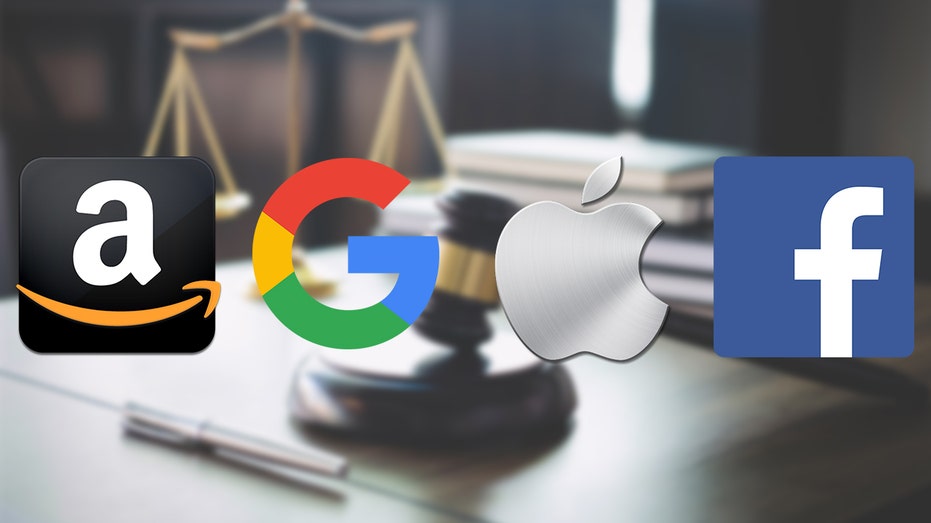Top antitrust enforcer warns Big Tech over data collection
The Justice Department's top antitrust official warned big tech companies Friday that the government could pursue them for anticompetitive behavior related to their troves of user data, including for cutting off data access to competitors.
"Antitrust enforcers cannot turn a blind eye to the serious competition questions that digital markets have raised," Assistant Attorney General Makan Delrahim told an antitrust conference at Harvard Law School.
Delrahim did not name any specific companies, but his office is investigating companies including Google while the Federal Trade Commission probes Facebook. The House Judiciary Committee is also conducting an inquiry looks at those two companies plus Amazon and Apple.
BILL GATES CALLS JEFFREY EPSTEIN MEETING 'A MISTAKE IN JUDGMENT'
All but Apple are members of the Computer and Communications Industry Association, a tech lobbying group sponsoring Friday's conference.
Delrahim said some of the most interesting and alarming legal issues raised by the rise of the digital economy are in the "collection, aggregation and commercial use of consumer data," which he called "analogous to a new currency."
GET FOX BUSINESS ON THE GO BY CLICKING HERE
He said his office is studying "the ways market power can manifest in industries where data plays a key role," particularly when large amounts of data are amassed that are "quite personal and unique in nature" and offers insight into "the most intimate aspects of human choice and behavior, including personal health, emotional well-being, civic engagement and financial fitness.
That, said Delrahim, can create "avenues for abuse."
The acquisition of such data is especially valuable for companies in the business of selling predictions about human behavior, he said. That's how Google and Facebook — which dominate global search and social media — attract targeted advertising.

He cited Harvard Business School professor emerita Shoshana Zuboff's theory of "surveillance capitalism," which holds that the "behavioral data" those companies acquire through their nominally free services is a wholly new kind of product. Zuboff considers it massively invasive and exploitative.
Delrahim said that "although privacy fits primarily within the realm of consumer protection law, it would be a grave mistake to believe that privacy concerns can never play a role in antitrust analysis."
He cited several studies indicating people's willingness to "relinquish data for a fairly small incentive" including a study in which 1,500 students at the Massachusetts Institute of Technology "were willing to share the contact information of their closest friends in exchange for only a pizza."
Robust competition can spur companies to offer more and better privacy protections, Delrahim said.
"Without competition, a dominant firm can more easily reduce quality - such as by decreasing privacy protections - without losing a significant number of users," he said.
That has been a major criticism of both Facebook and Google.
READ MORE ON FOX BUSINESS BY CLICKING HERE
Delrahim also said his office is being "especially vigilant about the potential for anticompetitive effects when a company cuts off a profitable relationship supplying business partners with key data, code, or other technological inputs in ways that are contrary to the company's economic interests."
A lawsuit filed in California against Facebook by a small startup called Six4Three claims it forced thousands of partners out of business by cutting off their access to valuable user data in 2015 while continuing to provide it to preferred partners that generated big advertising revenues. Facebook says it restricted access out of concern for user privacy.
One company not cut off until later, the political consultancy Cambridge Analytica, obtained the personal data on 87 million people without their knowledge or consent. That revelation triggered intense scrutiny of Facebook and other Big Tech giants, including investigations by most state attorneys general of both Google and Facebook.




















